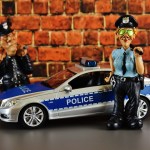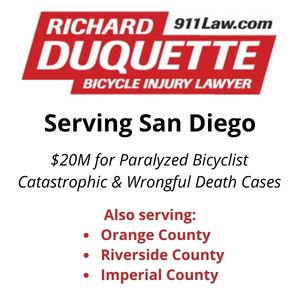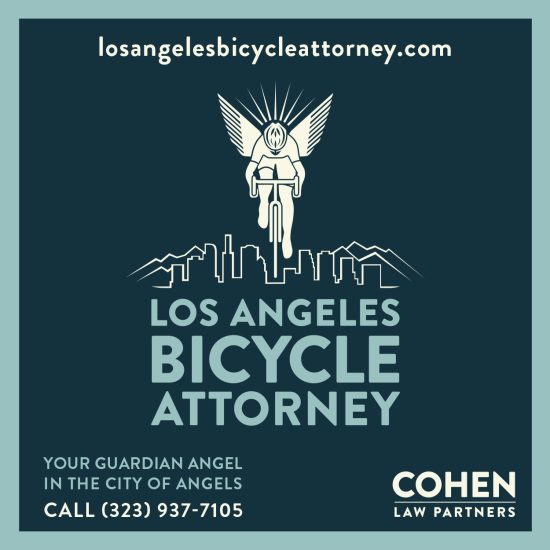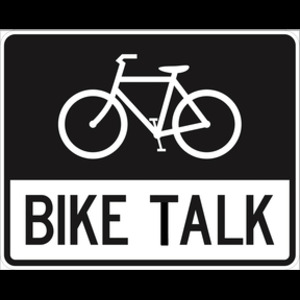
Day 48 of LA’s Vision Zero failure to end traffic deaths by 2025.
………
Happy President’s Day!
Or as most non-government workers call it, Monday.
………
Colorado marked Winter Bike to Work Day on Friday, including in my frosty, bike-friendly hometown.
Yet for some unexplained reason, we can’t manage to encourage people to commute by bicycle here in Southern California in any month with more than three letters. Even though our weather is a helluva lot more conducive to it.
Then again, we barely manage to mark May’s Bike to Work Day any more. Or Bike Anywhere Day, or whatever the hell you want to call it.
Maybe because getting more non-regular riders out on bikes only calls attention to our appalling lack of safe, connected bikeways, aside from a handful of cities like Long Beach and Santa Monica.
Which, by coincidence, just happen to be among the few cities that still make more than a token effort at marking the May Bike to Work Day.
So maybe I should stop complaining about not doing it twice a year, and just hope someone will get back to putting a little effort into just doing it once.
………
Buy a new bike directly from California-based Specialized this week, and they’ll donate $100 to fire relief efforts in the LA area.
………
Bike Culver City hosts a Handlebar Happy Hour this Thursday. Which isn’t exactly a Winter Bike to Work Day, but it’s a start.
Join us in the Arts District for some drinks with your friendly neighborhood mobility advocates! New location, 21 and older. Ride from City Hall at 5 pm or meet at 5:30 at Hi-Lo pic.twitter.com/aQssua1b4m
— Bike Culver City (@BikeCulverCity) February 16, 2025
………
The war on cars may be a myth, but the war on bikes just keeps on going.
Velo considers why cities are ripping out bike lanes, and what you can do about. Besides moving to another city with leadership that doesn’t have its collective head up its collective…well, you get it. Read it on MSN if the magazine blocks you.
No surprise here. A new survey shows most British drivers falsely believe bicyclists are required to ride single file, next to the curb — and a third think they shouldn’t have equal rights on the road.
But sometimes, it’s the people on two wheels behaving badly.
A blind London man complains, justifiably, about bicyclists and ebike riders who zoom past on the streets and sidewalks with no warning. Seriously, if you see a cane or service dog, slow the eff down already.
A 22-year old Irish man walked without a day behind bars for an “appalling” road rage attack on a motorist, after he picked up his bicycle and threw it at the other man as they argued over who had the right-of-way; the judge gave him a three-month suspended sentence. And no, he’s no relation, as far as I know. Although that Irish temper sounds familiar.
………
Local
UCLA campus cops busted a man riding a bicycle in an early morning traffic stop several blocks off campus, arresting him as a felon in possession of pepper spray, as well as meth, Xanax and drug paraphernalia.
A Valencia letter writer who apparently has an exceptionally low car says the city’s new bike lane “paddles” — an apparent reference to plastic bollards — impairs sightlines at the intersection, making it difficult to see other cars. Even though most cars are big and kinda hard to miss, and bollards are usually small and far below eye level from the driver’s seat.
State
Sunnyvale’s plan to build protected bike lanes has stalled because the city can’t figure out how to keep them clean or pay for a street cleaner to do the job.
A new safety feature on Tesla’s Model Y and 3 vehicles — which are still built in Palo Alto, despite the HQ’s move to Texas — prevents anyone from opening a door if something is too close, like someone on a bicycle, for instance. Thanks to Bernard Bogard for the heads-up.
Megan Lynch forwards news that a mudslide has shut down the Solano Bikeway above eastbound Interstate 80 outside of Vallejo.
National
Singletracks wants to know if you’ve ever bought counterfeit bicycle components.
An Oregon man got his “one-of-a-kind” bicycle back because he had installed an AirTag on it, after police traced it to a home where they could see it and another bike through the front window, arresting two men illegally squatting inside.
In a bizarre case, a Washington state man died from sepsis in jail on New Years Eve, after suffering an abdominal injury in a bicycle crash two days before his arrest.
The husband of a bike-riding Washington woman killed by a DEA agent who ran a stop sign, with no emergency or exigent circumstances, says that’s like playing Russian roulette with the public’s safety.
New Mexico lawmakers are working to improve safety for bike riders by advancing a bill allowing them to treat stop signs as yields; Nevada is considering a similar bill, too. Something our current governor has vetoed twice.
Speaking of New Mexico, a reformed road cyclist considers the local state of bicycling, and suggests that everyone should get an ebike.
That’s more like it. An Illinois man was sentenced to 17 years behind bars for killing a man riding a bicycle while stoned on drugs. All of which could have been avoided by just not getting behind the wheel after taking controlled substances.
Bicycling relates a bikepacking trip along America’s longest multiuse trail network, New York’s Empire State Trail. But you’ll have to subscribe to read this one if you don’t have any freebies left.
International
Bike Radar says if you really want the best bike for your money, build it yourself.
Fun. The same high-vis you wear to make yourself more visible to human drivers can make you invisible to their car’s automatic braking systems.
Momentum marked Valentines Day by highlighting the five most romantic bicycling cities. None of which is Los Angeles, needless to say.
Tragic news from Mexico, where a 27-year old bicycling influencer fell to his death while trying to mountain bike down a volcano, after hitting his head and losing consciousness at over 16,000 feet.
A British Columbia police watchdog concluded that a Canadian Mountie did nothing wrong when a man riding a bicycle was killed when he fled from a traffic stop and was struck by a semi-driver moments later.
That’s more like it. A bikeshare firm in Waterloo, Ontario will be adding on-demand handcycles and adult tricycles to their offerings this year. Thanks again to Megan Lynch.
India’s sports minister urges everyone, but especially young people, to commute by bicycle by listing six ways it improves health.
A new Chinese study examines “the spatial heterogeneity effects of street environmental factors on the preference for sports and leisure cycling paths across different street types,” as the abstract offers a similar word salad to conclude that the factors that influence where bicyclists ride are exactly what you would have guessed. `
Legislators in Australia’s New South Wales are considering allowing ebikes and e-scooters on sidewalks, but limiting speeds to 18 mph.
Competitive Cycling
Evidently, birds of a feather really do stick together, as fellow former dopers Lance Armstrong and Jan Ullrich will ride together in Germany at Ullrich’s May bicycling festival.
Finally…
That feeling when you’re mistaken for being homeless while riding your $5,000 bicycle not far from your multi-million dollar home. Or when a real Hollywood star inspires an iconic fictional bike ride.
And no, you shouldn’t just wrap your broken carbon frame in duct tape and ride it anyway.
………
Be safe, and stay healthy. And get vaccinated, already.
Oh, and fuck Putin.


















